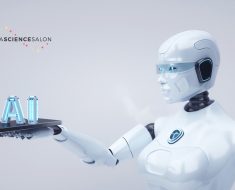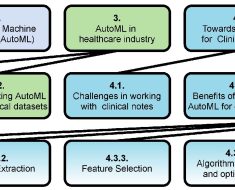I watch a lot of YouTube – so you don’t have to. In this series I’ll bring you some of the best of what I’m watching, and sometimes, as in this post, I’ll provide my own commentary.
YouTube is buzzing this week. Sam Altman is rumoured to be making a big announcement sometime soon. He may do it before I even get to publish this. As the video I included in the header indicates – the big rumour is that “everything is about to change.” Will it be Artificial General Intelligence (AGI) – the autonomous thinking and operation of AI?
The most likely answer is no. AGI will come sooner than you think. I’ve heard estimates of the end of this decade, and they are very believable.
But long before AGI hits, we will see a transformation coming – AI agents.
You might be thinking, we already HAVE AI agents.
But what we have now are single purpose, pre-programmed agents. They are programmed with natural language, but they are developed to handle a specialized, narrow purpose. They operate independently.
Again, you might say, I can now call multiple GPT’s in a single conversation. You would be right. But try calling more than two of these agents in a single conversation. Unless you specifically designed them to work together, the results will be suboptimal. The fact that you can call two agents doesn’t mean they will work together.
To make these independent agents truly collaborate would take a lot of work and a really structured approach. To get a reliable result, you need a high degree of coordination to direct traffic to the right agent and manage their collaboration.
While this may not always need programmers, it does require a true disciplined designer mindset, and time to develop, implement, test and manage via some kind of controller or application that can manage these independent agents.
But what if there was a new type of controller, one that could learn behaviours and use that learning to manage agents, programs and even physical devices the same way we humans do?
It’s already here. Take a look at this next video.
The Rabbit r1 was a big hit at the CES show this year. It’s affordably priced, it allowed direct access to an AI engine. But the focus on the device may have missed the real bombshell that Rabbit r1 dropped.
In the video, CEO Jesse Lyu teaches the AI to book a vacation, but he’s not visiting the web-sites, nor is he clicking on any web pages. The “controller” that oversees the interaction of agents and websites is doing all the work. More than that, it’s learning from this interaction how to do this series of tasks to achieve a particular result. After its first training, he is able to just say, “plan a trip” with a few comments and it executest the planning and comes back with appropriate options.
Think about that. There is no need for interfaces or APIs. There is no need for the user to have standalone apps. Once trained on a similar task, the AI system (not the device) is able to learn to do everything necessary – including operating a browser or even a computer – on its own, without intervention, to achieve a specific outcome. Once it’s learned that task, it can adapt it and even modify it.
We will have an AI that learns and can take multiple complex actions without human intervention. Where does this lead us? It leads us to a massive disruption. Here are some of the areas to watch:
Devices – We are tied to devices like phones, tablets and laptops. Why? These devices are tools required to translate human ideas into actions. The house the specialty apps and programs that we need to use. The human is the intelligence – the “coordinator” that knows the overall task and selects the tools and provides the input, assesses the results and brings it all together.
Once you break that cycle – if the AI or operating system can learn to do all this, why do you need these specialty apps? Why do you even need a phone or even a laptop?
Apps – As noted above, this could be a huge disruptor. Apple, Google, Samsung and others sell us phones, which are really just containers that hold your apps. Most apps, at their core, perform a pretty simple purpose. Much of their complexity, and their success or failure, goes into how they interface with the person who plans and executes the actions. Once there is no need for that individual intervention, why do we need apps?
This is a huge threat to the phone providers. Phones are a big business and they exist largely to hold and run apps. For Apple, at least, apps are a big business. They make almost a hundred billion dollars a year off its app store.
We’ve shown you the Rabbit r1. Here’s another device that got little attention, but could also give Apple something to worry about. It’s called Humane and it also eliminates the need for an app based device.
Data – If you think Facebook knows a lot about you, just think about what this new super-agent will know about you. If it books your travel, does your purchases, researches information for you – it will know EVERYTHING.
You might remember the scandal that happened when a company called Cambridge Analytics collected Facebook data and claimed they could use likes and dislikes to predict everything from your voting preferences to your sexual preferences. That’s going to seem “so 2016” when you consider that we might all have an agent that no longer has to predict – it will know what you are going to do.
That creates a huge dilemma in terms of privacy. Where will that be stored? Who will “own” it and control it?
Could Metcalfe’s law be broken?
All of our lives since the turn of the century have been, if not controlled, at least largely managed by a handful of mega-companies. These companies grew up because of Moore’s law. Technology got more powerful and cheaper every year. The phone we have today is exponentially more powerful than the mainframes of the last century and anyone can afford it. That made the digital revolution, the internet, e-commerce and social media possible.
Now they hold onto their dominance because of Metcalfe’s law.
For those not familiar with it, Metcalfe’s law, simply stated, says that the value of a network is the square of its nodes. Or to put it simply, once you get a critical mass of users in any platform, it becomes really hard for anyone else to compete.
We can grouse about Linked In, or Facebook all I want but if we want to share informaiton with my business contacts or friends, you pretty much have to stay on these two social networks.
How strong is Metcalfe’s law. It is so strong that even Elon Musk has not been able to totally kill X/Twitter. Millions have left for other platforms, but even so, few have actually deleted their Twitter account and totally moved on. Despite many new startups trying to supplant Twitter, as of yet, no-one has. The value of their network is still dwarfed by Twitter.
X/Twitter may lose enough money to destroy itself, but it hasn’t lost enough people. That’s the power of Metcalfe’s law.
That’s why, in the digital world, monopolies and oligopolies not only emerge but they dominate against even the best competition. Facebook owns your personal networking, LinkedIn has your corporate netwwork and so on. In this digital world, this even extends to products. Microsoft owns your desktop, Google is where you search and get your browser, Apple or Samsung are where you get your phone.
There are mavericks, maybe even some niche players, but in the bigger scheme of things they are irrelevant. The big get bigger, whether they deserve it or not.
And they are enormous. Each of the companies I mentioned had a bigger value than the Hong Kong stock exchange or the GDP of many nations. That gives them not just network power. It also gives them incredible wealth. It allows them to make stupid mistakes and still recover. They can fail to innovate, but they still have massive size and economic power to buy anyone who innovates and threatens their dominance.
Microsoft dropped a cool 10 billion or more to have OpenAI’s ChatGPT. It’s not the first time Microsoft has bought its way out of being threatened by an innovator. Apple, who has not made any great moves in the AI world has quietly been buying AI startups.
This power makes it almost impossible to dislodge these giants by any normal competitive approach. It would take a seismic shift to disrupt them.
But we’ve seen these disruptions. Apple did it with the iPhone and apps. They revived a nearly bandrupt company and took it to the status of the most valuable company in the world. They did it by seizing an new opportunity space created by a merging of technological possiblity and human imagination.
What could disrupt the current big players? What if the thing that made them dominant is no logner valued? They own our data. They control our access to communities.
But what if we all “owned” our own data. What if our access to the global network was device and “app” independent?
If the control of our data and the access points to our networks is no longer a barrier to entry, what is?
Could ipatents and intellectual property rights protect these companies. Probably not. The courts have ruled against Meta trying to protect its AI model, ruling that AI may not be protected through copyright since it’s derived from other information.
The potential for disruption is clear. But do not think for a second that any of these companies is going to go down without a fight. They still have enormous resources.
Yet, disruption is coming. There is a threat and they will have to respond. Watch for the strategies they will use to retain control.
The move from Large Language Models to Large Action Models and autonomous agents changes everything. In this context, when we get to Artificial General Intelligence may not longer be relevant.
The ability of an underlying AI model to learn and exercise external control will inevitably lead to something we will call AGI. But long before that, automous agents will have an a devastatingly powerful impact.
AGI may take years, but we will see autonomous agents in the coming weeks and months.
Disruption is coming more quickly that we might want
It’s safe to say that nobody really knows how this will play out or who will win. There is a huge disruption coming.
We know that those who hold power will not give up without a fight.
All we can be certain of is that autonomous agents present a major opportunity for disruption. The impact of that disruption will make the industrial revolution look like a walk in the park.
YouTube videos can be sensationalistic. But in the midst of the hype, and even though these videos are demos there is clearly something big happening.
Buckle up. Here comes the future.
The post Forget Artificial General Intelligence (AGI) – the big impact is already here and it’s called AI agents first appeared on IT World Canada.
![Large Language Models are Superpositions of All Characters: Attaining Arbitrary Role-play via Self-Alignment. (arXiv:2401.12474v1 [cs.CL]) Large Language Models are Superpositions of All Characters: Attaining Arbitrary Role-play via Self-Alignment. (arXiv:2401.12474v1 [cs.CL])](https://aigumbo.com/wp-content/uploads/2023/12/arxiv-logo-fb-235x190.png)




